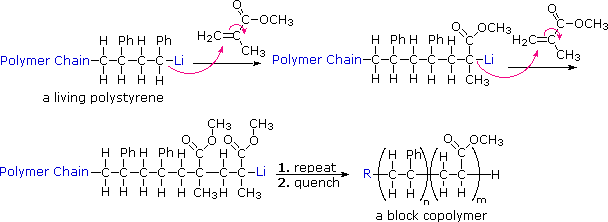Personalized Polymers: Customized Solutions for Unique Applications
Discovering the Varied Applications and Advantages of Polymers in Different Industries
Polymers, with their diverse range of homes and functionalities, have actually become vital in various industries, each reaping special advantages from their application. From enhancing security and performance in the automotive field to reinventing clinical tools in the healthcare industry, polymers play a crucial function.
Automotive Industry Applications
Polymers play a critical role in boosting the performance and sturdiness of numerous elements within the automobile sector. One famous use of polymers in the automotive market is in the production of lightweight elements.

Healthcare Industry Advantages
In numerous healthcare applications, the advantages of making use of polymers are extensively acknowledged for their varied variety of valuable properties. Polymers play a crucial duty in the health care market due to their versatility, biocompatibility, and cost-effectiveness. One of the primary advantages of polymers in healthcare is their capacity to be tailored to specific needs, such as versatility, resilience, and biodegradability, making them ideal for a variety of medical applications.
Polymer-based products are extensively used in clinical tools, such as catheters, implants, prosthetics, and drug delivery systems, due to their biocompatibility and capability to resemble all-natural cells. These products can minimize the threat of sensitive reactions or rejections, improving individual safety and end results. Furthermore, polymers are lightweight, making them appropriate for wearable medical gadgets and making certain person comfort.
Moreover, polymers allow the advancement of cutting-edge treatment techniques, such as hydrogels for cells design and nanocomposites for targeted medicine shipment. Their simplicity of handling and sanitation makes them necessary for maintaining high requirements of hygiene in medical care setups. Overall, the varied advantages of polymers contribute substantially to improvements in clinical innovation and patient care.
Ecological Benefits of Polymers

Additionally, polymers can add to power financial savings as a result of their light-weight nature. In industries such as transportation, lightweight polymer materials can help in reducing fuel intake and greenhouse gas exhausts. In addition, polymers can allow the advancement of energy-efficient items such as insulation materials that boost energy conservation in structures.
Additionally, polymers play an essential duty in reducing water pollution. The usage of polymer-based purification systems can successfully eliminate contaminants and contaminants from wastewater, protecting water resources and ecosystems. On the whole, the environmental advantages of polymers make them useful assets in advertising sustainability and green techniques Website across various sectors.
Polymers in Electronic Devices and Innovation
Thinking about the increasing need for ingenious and sustainable remedies in contemporary industries, the assimilation of innovative polymer innovations in the realm of electronic devices and innovation has emerged as an essential technique for driving performance and performance. Polymers have actually revolutionized the electronic devices industry by making it possible for the production of lighter, more versatile, and durable digital devices. From smart devices to medical tools, polymers play a vital role in boosting product layout and capability.
One considerable advantage of polymers in electronic devices is their protecting properties, which aid protect fragile electronic components from ecological elements and electric disturbance. Additionally, polymers are vital in the development of versatile display screens, wearable technology, and published electronic devices, offering countless opportunities my sources for creating wise and interconnected tools.
Furthermore, the use of polymers in digital packaging has actually led to improvements in miniaturization and thermal management, enhancing the total efficiency and integrity of digital systems. As modern technology remains to advance, the adaptability and adaptability of polymers will undoubtedly drive better advancement in the electronic devices industry, shaping the future of modern technology.
Role of Polymers in Building and Facilities
The assimilation of advanced polymer materials in building and framework projects has actually transformed the method structures are developed and developed in contemporary times. Polymers provide various advantages in the construction industry due to their versatility, resilience, and cost-effectiveness. One essential role of polymers in construction is their usage in layers and sealers, supplying security against ecological variables such as dampness, UV radiation, and deterioration. Furthermore, polymers are utilized in the manufacturing of light-weight and high-strength composite materials, enhancing the structural honesty of structures while decreasing overall weight.
Furthermore, polymers play an important role in sustainable construction techniques by making it possible investigate this site for the advancement of energy-efficient structures. Shielding materials made from polymers assist control interior temperature levels, lowering the requirement for heating and cooling systems and ultimately decreasing energy consumption. The usage of polymer-based compounds in facilities tasks such as bridges and roads improves their long life and minimizes upkeep prices. In general, the unification of polymers in construction and infrastructure showcases their significant influence on contemporary engineering practices.
Verdict
In final thought, polymers play an important role in various sectors such as vehicle, health care, environmental, electronic devices, and building. From improving fuel performance in automobiles to enhancing clinical gadgets, polymers provide numerous benefits.